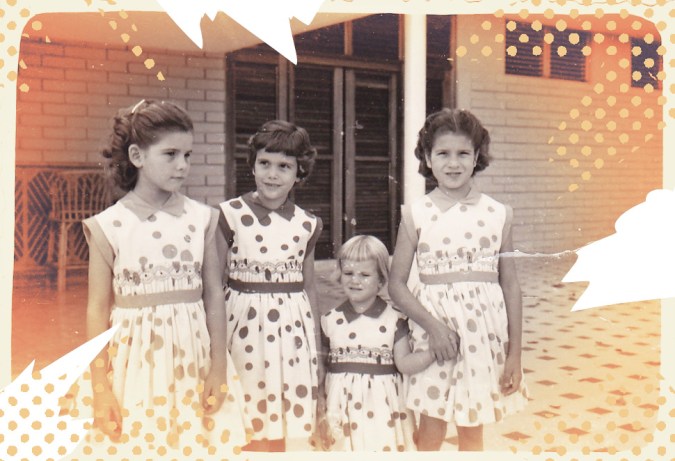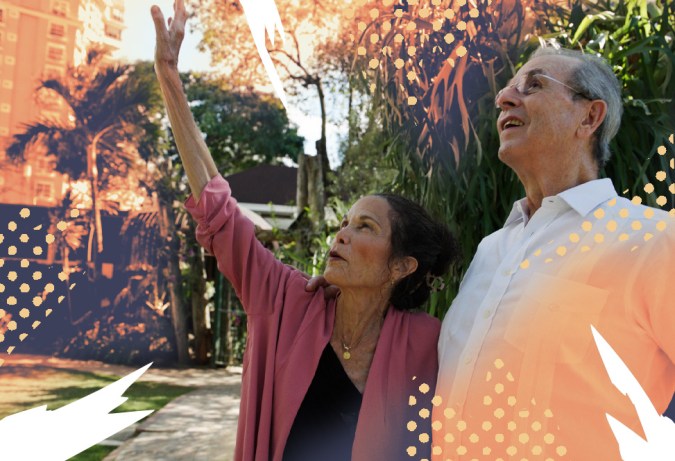Thirty years ago, the story of the Mirabal sisters wasn’t completely unknown, but their names didn’t carry the global weight they do today. Six years after the publication of In the Time of the Butterflies, Julia Alvarez’s influential book telling the story of the resilient Mirabal sisters in the Dominican Republic, helped influence the United Nations General Assembly designating November 25 as the International Day for the Elimination of Violence Against Women. At the time, her own mother was the one to submit the proposal for the day of remembrance.
Alvarez, the subject of a new PBS documentary titled Julia Alvarez: A Life Reimagined, spoke to Remezcla about the process of writing that book, carrying her homeland with her, and the impact of her book, In the Time of the Butterflies.
“Stories are portable,” Alvarez, who in the documentary shares that when she left the Dominican Republic, she lost even her language, but that the stories of her home remained. “That’s what’s wonderful, the portable homeland.” And an important part of that homeland was the story of the Mirabal sisters.
“In the Time of the Butterflies is a very specific celebration of three women. No, four. The more I researched, the more I was like, she (Dedé) deserves a celebration, too, for keeping the story alive.” And in a way, it also reflects Alvarez’s life as well, as her and her sisters escaped the Dominican Republic in 1960 because of the dictator Rafael Leonidas Trujillo.


But the story of the Mirabel sisters, in many ways, waited for Julia Alvarez. “It was important for me, and for the Mirabal family, too, you know, because when I started writing, I mean, people knew through word of mouth, but the story hadn’t gotten out. And for Dedé, this was a redemption, because she was always telling the story, and people were always trying to shut her up. And then along comes Julia, you know, with, you know, her megaphone from another world, and gets the story out.”
What is that story? The Mirabal sisters were political activists against the Trujillo regime in the Dominican Republic. Three of them: Patria, Minerva, and María Teresa were brutally assassinated by the Trujillo dictatorship on November 25, 1960. Their killing served as a final catalyst for the overthrowing of Trujillo, who himself was assassinated six months after their deaths.
Years later, partly because of the efforts from older sister Dedé Mirabal in getting the story out – and the fact that Julia Alvarez didn’t just sit down and write a story that someone told her, but instead went back to her home, meticulously researched and tracked down the sister’s movements in the days leading up to their death, In the Time of the Butterflies would have as much impact as the Mirabal’s sisters’ death. November 25th, is a day recognized by the UN, not just as the day these women died, but as the day the world stops and thinks about how to eradicate violence against women.


For Alvarez, who is the subject of a new PBS documentary that focuses on not just her life, but her journey to writing this book, it was very weird to be on the other side of the process. But for her this new documentary, In the Time of the Butterflies, and even her other works, like How the Garcia Girls Lost Their Accents, are just her attempts at experiencing life.
“The way we experience life is through character, our own, you know, and fiction creates that illusion that you’re inside this person,” she shared. “And so, it’s not that there’s a truth that’s out there, that you’re getting at. It’s how a person perceives that truth, how they live it out, and how they clash with someone else who is perceiving that same truth, but in a different perspective. So, yeah, that’s very much what novels are about.”
Adriana Bosch, the Cuban-American filmmaker who directed the PBS documentary Julia Alvarez: A Life Reimagined, provided a great perspective on Alvarez, pointing out that as a writer, she had “gone into the novel of dictatorship, which is a key feature of the Latin American boom and turned it on its head. Instead of it being about the leader, the dictator, like García Márquez or Vargas Llosa, she turned it around and made it about the victim, and not just that, about women. So, she’s turned literature on its head, and that needs to be talked about more.”


Julia Alvarez didn’t set out to do that. She just set out to tell stories, everyday stories. Stories that brought her homeland back to her. And stories that allowed her to escape. “That’s why I went to literature because it was the one welcoming place when we came to this country, and we ran across prejudice and kids spitting at us and not wanting us there, saying go back to where you came from. Instead of feeling crushed by that, I became a reader and I entered a bigger universe.”
Sometimes, there’s something magical that happens when you enter that bigger universe. For me, who read In the Time of the Butterflies when I was a little girl and understood while reading it that I, as a woman, had a voice, there was something profound in being able to tell the woman who taught me that lesson how important it was to me – and to so many others.
And for Julia Alvarez, there will always be the pride and the joy in knowing that not only has the message resonated in the individual minds of readers, but that today, November 25 is universally celebrated as the International Day for the Elimination of Violence Against Women not just because sixty-four years ago the Mirabal sisters were murdered, but because thirty years ago Julia Alvarez wrote about it in In the Time of the Butterflies.





